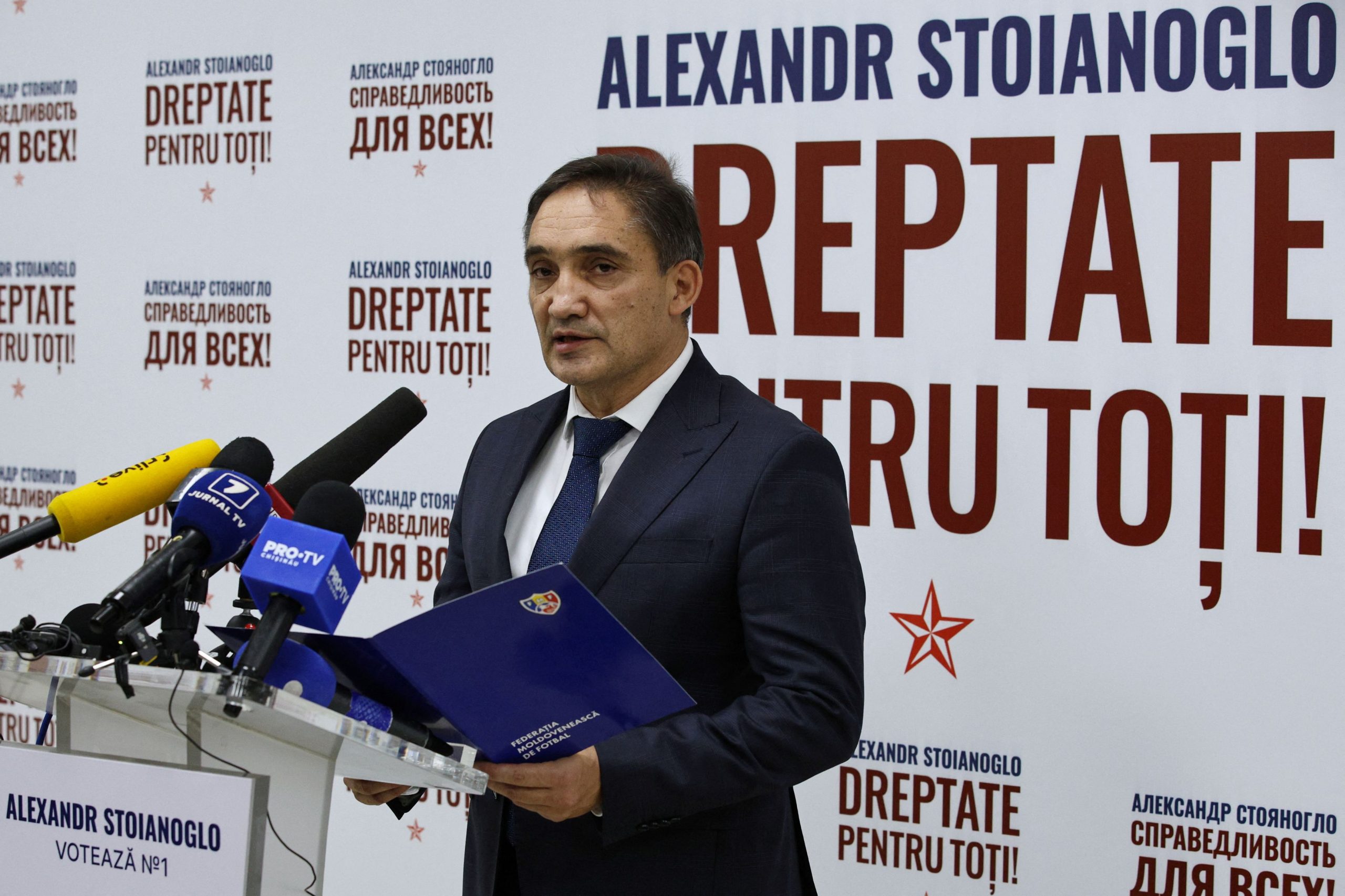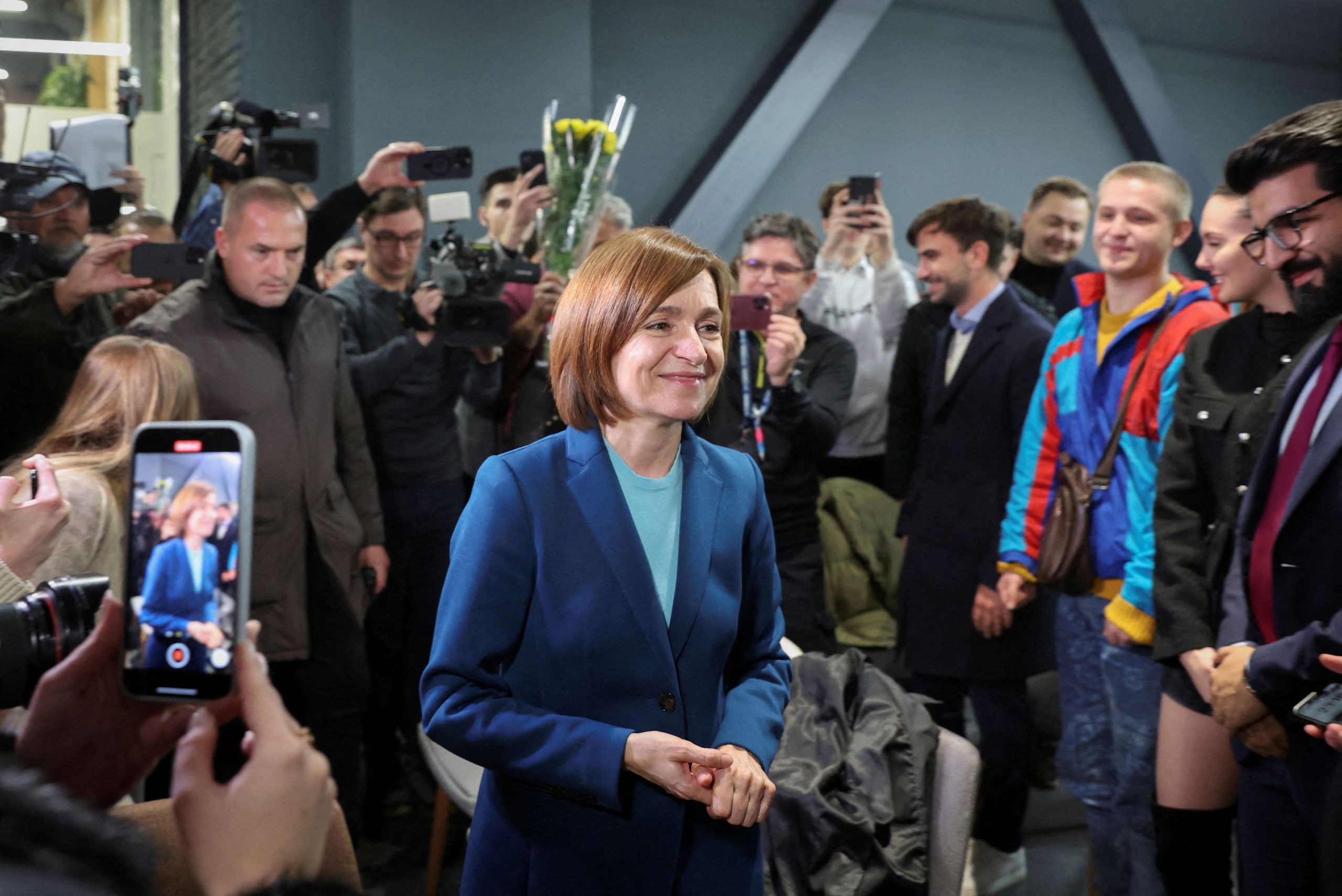In a closely contested race, Moldova’s incumbent, Maia Sandu, emerged victorious in Sunday’s presidential election, overcoming rival Alexandr Stoianoglo, backed by the pro-Russian Socialist Party. According to the Central Election Commission, with 98% of votes counted, Sandu led with 54.35% to Stoianoglo’s 45.65%, following a campaign shadowed by accusations of external interference, which Russia denies.
According to Reuters, Sandu’s re-election is seen as a mandate to advance Moldova’s push toward European Union membership. However, Stoianoglo’s strong base across Moldova signals a challenging path for Sandu’s party in the upcoming parliamentary elections, set to shape the country’s governance.

Moldova’s presidential candidate Alexandr Stoianoglo speaks at a briefing after polling stations closed in the second round of the presidential election, in Chisinau, Moldova November 3, 2024. REUTERS/Vladislav Culiomza
While Stoianoglo has voiced support for EU integration, he advocates increased relations with Russia, a stance Sandu and her supporters suggest aligns with Moscow’s interests—claims he firmly rebuffs. Moldova’s EU aspirations have been heightened since Russia’s 2022 invasion of Ukraine, a context underscoring the significance of the vote.
International observers watched the election closely, especially as Moldova joins countries like Georgia in their EU bid amid competing influences. Sandu addressed all citizens in her victory speech, pledging to be a unifying leader and to heed the voices of her critics.
“I want you to know – I have heard all voices, including the critical ones. And I thank you for looking past grievances, past dissatisfactions, to protect our country,” she said.
According to Reuters, in this election, Moldova saw its largest diaspora turnout since 2010. Results revealed that while Stoianoglo led domestically, Sandu dominated among expatriate voters, capturing more than 80% of that vote.
Meddling Claims
Sandu’s national security advisor, Stanislav Secrieru, cited “massive interference” by Russia, accusing Moscow of tactics like voter transport, cyber-attacks, and threats at European polling sites. Moscow has denied such allegations. The campaign also witnessed reported vote-buying schemes, which Sandu attributes to fugitive oligarch Ilan Shor, based in Russia, who has denied any involvement.
We’re seeing massive interference by Russia in our electoral process as Moldovans vote in the presidential runoff today—an effort with high potential to distort the outcome. Authorities are on high alert. Thread with instances of meddling, which I’ll be updating in real time ⬇️
— Stanislav Secrieru (@StasSecrieru) November 3, 2024
Stoianoglo’s campaign argued Sandu’s approach has divided the nation, grappling with economic challenges stemming from the COVID pandemic and the ongoing regional turmoil. Moldova’s high inflation and reduced energy supplies have presented further economic hurdles, sparking debate over the government’s future direction.
In the end, Sandu framed the election as a choice between the stability of EU integration and an uncertain alternative, a message that resonated with a significant share of voters eager for change.



